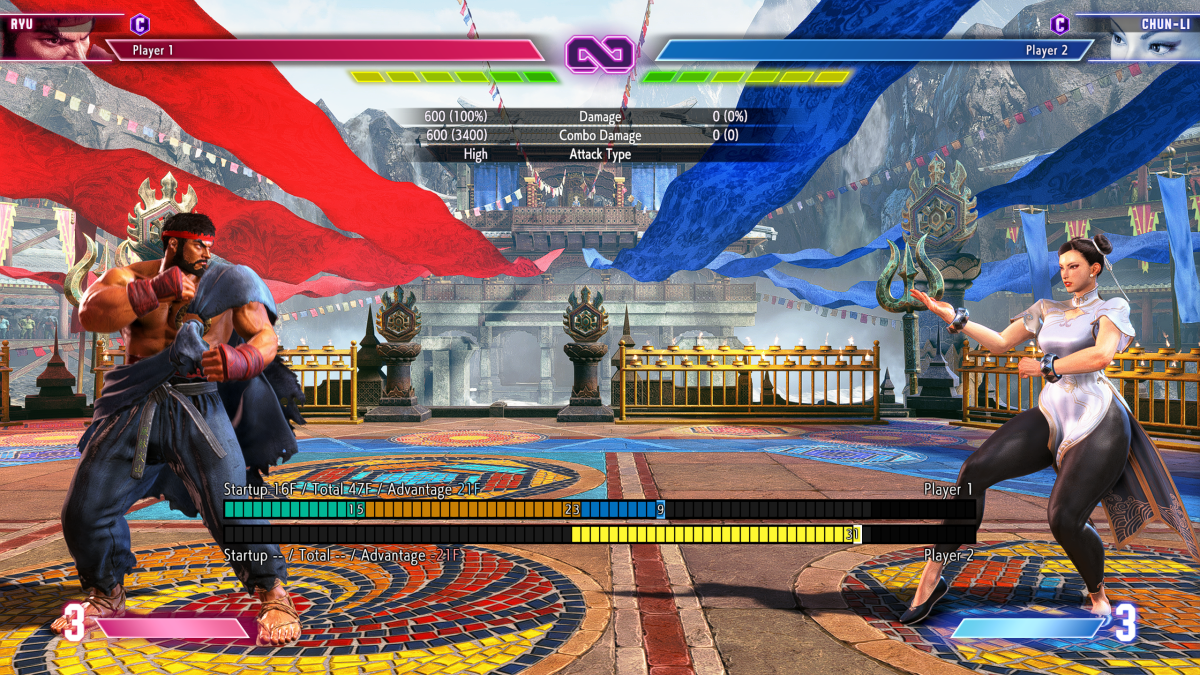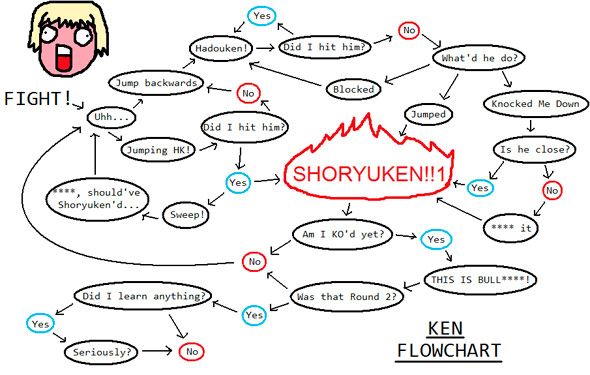Should You Get Into Fighting Games?
How Street Fighter 6 captures the essence of fighting games

Like an uncle rising from an afternoon nap, Capcom has reared its stubbled chin to usher in a new renaissance for the historic genre with Street Fighter 6. This year's EVO reached a record-breaking 9182 unique participants, with 7061 of them competing in SF6. This year also saw the release of Mortal Kombat 1 to much acclaim, so with lots of streamer attention and some great upcoming titles, the genre looks to be on the cusp of a huge revival. However, with the base game of Street Fighter 6 at $100AUD ($60USD), it's a hefty chunk of change. Is it worth jumping in?
Fighting Games, while instantly recognisable, are also shrouded in a bit of mystery. Their core gameplay is visually distinct and simple to understand, yet also extremely unlike popular modern games. Completely divorced from gunplay, team-based gameplay, or even mouse and keyboard controls, it can be difficult to understand the experience of playing these games, making them extremely foreign for most contemporary gamers. I'll talk primarily with reference to Street Fighter 6 as it's currently the most accessible fighting game.
The appeal of fighting games has always been the simplicity of their core design; a 1-on-1 match with few variables. No teammates to blame and no RNG to gamble on. Each loss is traced back to your own failure of decision-making or execution. Every match is a test of skill, where you need to learn your opponent as much as their character.
“A great fighting game lets you stare right into the soul of your opponent." - Seth Killian (Co-Founder of EVO)
The simple design is what makes fighting games a timeless genre, but also makes them incredibly frustrating experiences. The genre channels the innate competitiveness of people, and that's precisely why it is both addictive and infuriating. Unlike other games, there are no real mitigating factors to ease the mental strain. There's no way to sugarcoat it – these games can raise your blood pressure like no other.
When you're matched up against someone better than you, it feels incredibly disheartening. They block everything you throw out and can punish everything you try to do. Unlike other games, where enjoyment can be derived from advancing a story or goofing around with friends, the dopamine hits from fighting games come solely from winning interactions with the enemy, something that can only become more consistent with learning and practice.

Each small piece of improvement, whether in execution or knowledge, can be tangibly seen in gameplay results. This is a huge part of what makes learning so enjoyable. The amount of exchanges per match in fighting games is far less than in the average MOBA or shooter. You generally die in about 4 to 5 combos, so each opportunity blown is quite visceral. As you drop combos less or notice opportunities you would've missed in the past, so too does the feeling of accomplishment increase.
"Valuing learning and growth is generally a pretty common trait among fighting game players, since it’s a big part of the engagement loop that the genre is built around." - Patrick Miller
For this reason, the genre of fighting games tends to draw a more hardcore audience. The Fighting Game Community (FGC) is naturally situated within the Esports sphere of gaming, with a storied competitive history that goes back to the arcades.
Intro for EVO 2023 SF6 Finals. Source: YouTube.
Players who spend time learning mechanics, character tech, and combos are rewarded with both successes in gameplay but also with fulfillment from mastering the depth of gameplay. Pretentious sounding, I know, but this is the aspect of the game that pulled me in the most. Combos, while fun to learn and practice, are not as important to winning as understanding underlying game concepts. These are ideas like frame traps, footsies, or throw loops; universal concepts that can be found in all fighting games.
Learning about the existence of frame data led me to the concept of a "Meaty" attack, which then helped me understand the concept of Oki. Understanding this idea allowed me to adjust my own gameplay on a more holistic level and grasp the nuance in professional matches. I could appreciate the game on a level higher than just damage and execution.
Combos never CREATE an opportunity, they're merely ways of taking advantage of existing opportunities... Combos are only any good when you've already broken down an opponents defense- and against good players, that don't come easy. - Seth Killian
I still remember when I just started playing, I couldn't understand why anyone would use light attacks when the range was shorter and they dealt less damage than medium or heavy attacks. It was only after I understood the concept of "Turns" that I realised you used lights because they were faster and you could exploit gaps or beat opponent attacks with them. Afterwards, however, I also realised that I had begun to default to light attacks which, while consistent, were causing my gameplay to stagnate because I wasn't looking for chances to use slower but stronger attacks.
This is just one analogy about learning a simple concept in fighting games, but it provides an idea as to how much difficulty lies in its application. It's not complicated per se, but the amount of moves and situations means mastery is a long road.

Learning to read opponents and their habits is the other half of the problem-solving that makes fighting games so fun. You learn characters and their moveset, but more importantly, you need to learn the opponent; what moves they like to use, how they like to react to your jumps, if they throw a lot, etc.
Gamers 8 Grand Finals. Source YouTube.
Each move in SF6 tends to have a combo or follow-up situation attached to it, and removing one can drastically change how a character has to approach the game. It also forces the player to have to quell hours and hours of muscle memory, which drastically adds to their mental stack. You can see an example of this above, where Kakeru has learned the timing to perfect-parry Ken's Jinrai Kick (the move where he jumps at his opponent and kicks). Ken's Jinrai kick is a notoriously strong move and Kakeru's ability to negate it removes a powerful tool in Ken's gameplan.
Adjusting your instincts and game plan while adapting to opponents is extremely fun, but can also get really personal if you get outplayed. There's a reason in other multiplayer games, differences are settled in a 1v1. There is no greater humiliation than getting "Downloaded" (completely figured out). As a player, you bare your all in the match. Due to the simplistic nature of the gameplay, you can use every trick in the book and see where you need to improve.
Pro Player Infiltration after winning EVO 2016. Source: YouTube.
So if the key to enjoying fighting games is the feeling of constant improvement, can you still play it casually? Yes, although if you download the game just to play casually, it can get boring fairly quickly. The true fighting game experience is one of learning and practice, but that isn't the only way to play SF6.
Capcom has gone to great lengths to make the game accessible for new players. They have created an open-world RPG story mode called World Tour and also a simple control scheme called Modern Controls, that makes comboing and inputs very easy, allowing you to reach a level where the mind games become impactful more quickly.

In my opinion, there are a few different ways you could play SF6:
- With friends, as a party game.
- Casually, not trying to improve.
- Casually/Competitively, actively trying to improve.
Option 1 is fine in my opinion because any game is fun with friends, especially when they consist of head-to-head matches that make for great banter opportunities. While the mechanics are simple to pick up, the controls have a slight learning curve to reach basic competency, an issue that Modern Controls solves. There are also a few settings that can be turned on to introduce RNG events and other fun challenges to level the playing field. The naturally competitive environment of a group harkens back to the ancestry of fighting games in the arcades and is one of the purest ways of playing any fighting game.
Option 2 is also a fine experience, but I wouldn't judge it to be worth $100 dollars. Casual players usually pursue a quick dopamine rush, and that comes temperamentally in this game. The game will match you with equally skilled opponents, but if you just want to keep trying to force the same simple combo over and over, you may find the game gets dull when people begin to figure you out. Even in that situation, the second you start trying to learn why you're losing or other combos to use, you've fallen into the gameplay trap of Fighting Games.
Option 3 is, in my opinion, the best way to play the game. Those with the hunger to learn will find hours upon hours of gameplay, and a very rewarding experience waiting for them. The longevity of the genre alone is proof that the formula works. Any naturally competitive gamer will find that these games nurture those instincts, and there is enjoyment to be found at all levels of the game. While there are some strong characters that are frustrating, those piloting these characters are fallible, and learning to read a player results in intense but deeply satisfying matches at a level I've seldom encountered elsewhere.
Evo Moment 37: The Most iconic E-sports moment of all time. Source: YouTube.
Street Fighter 6 is the best entry point into the fighting game genre in a long while, but it might not hold that title for long. Each fighting game has its own systems and its own charm, so you can always try a different title should you get bored of one. MK1 has a very different style and vibe than Street Fighter, but that difference is what makes each game so fun and appealing to different sensibilities. This diversity is only set to increase with Tekken 8 slated for a January 2024 release and Project L sometime in 2025. With the influx of players from a Riot Games IP, the boom we've seen so far may be a drop in the bucket of a Daigo comeback.
Fighting games as a genre have never looked more promising than right now, and Street Fighter 6 is the perfect way to start your journey.
